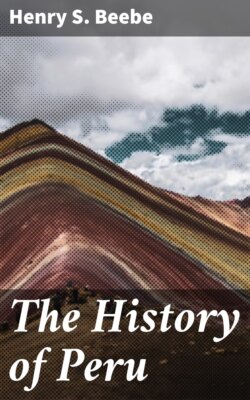Читать книгу The History of Peru - Henry S. Beebe - Страница 9
На сайте Литреса книга снята с продажи.
CHAPTER V.
ОглавлениеTable of Contents
Elections in 1843—Revenue—Efforts for dividing the County—Elections in 1844—Special Charter—Elections in 1845—Revenue—Return of Prosperity—Elections in 1846—Establishment of the "Beacon Light"—Name Changed to "Junction Beacon"—Formation of Hook and Ladder Company.
At an election held on the 20th of January, 1843, Churchill Coffing, John R. Merritt, Z. Lewis, Ambrose O'Conner and John Hoffman were elected Trustees. Whole number of votes 92.—This Board elected Churchill Coffing, President; and T. D. Brewster, Treasurer. The revenue arising from taxes on Real Estate was $262.
Peru, from her earliest history, had aspired to become a county seat. Situated upon the extreme western verge of the County of La Salle, she contemplated erecting a new one out of territory to be taken from La Salle, Bureau and Putnam. This scheme was strenuously resisted by Ottawa and the eastern portion of the county. A curtailment on the north and east was cheerfully submitted to, in order to assist in preventing the loss of the western jewel. Much acrimony was engendered by these contests; and all elections for county officers or State Legislature hinged upon this question. The Democratic party was largely in the ascendant; but the schemes of the politicians of that ilk were constantly baffled by the intrusion of this element. The completion of the Canal and Rail Road, furnishing facilities for travel between the two places, mainly put a stop to further agitation.
At an election held on the 25th November, 1844, Churchill Coffing, H. Whitehead, David Dana, Wm. Paul and S. W. Raymond were elected Trustees. Whole number of votes 45. This Board elected H. Whitehead, President; H. S. Beebe, Clerk; J. B. Lovett, Fire Warden; Isaac Abraham, Treasurer; O. C. Parmerly, Street Commissioner; Geo. Low, Collector and Assessor; and E. M. Moore, Constable.
On the 25th February, 1845, an Act passed the Legislature, extending the powers of the Trustees, and providing for their election in the following April.
At an election held on the 7th April, 1845, Churchill Coffing, David Dana, S. W. Raymond, Wm. Paul and H. Whitehead were elected Trustees. Whole number of votes polled 39.
This Board elected Herman Whitehead, President; H. S. Beebe, Clerk; O. C. Parmerly, Street Commissioner; Isaac D. Harmon, Treasurer; George Low, Assessor and Collector; E. M. Moore, Constable; and J. B. Lovett, Fire Warden. By the death of Moore, the office of Constable soon became vacant, and Z. Lewis, junior, was elected to fill it. The revenue, arising from the tax on Real Estate, was this year $261,-86 cents.
A degree of prosperity had now been attained, little dreamed of three years before. A large trade had gradually grown up and concentrated in Peru. It was no uncommon thing to see wagons loaded with produce, from a distance of sixty, eighty and an hundred miles, seeking a market at this point, and returning loaded with merchandise purchased here. General health, contentment and prosperity prevailed. Stores and dwellings continued to be built, and population to increase.
At an election held on the 6th April, 1846, Jacob S. Beach, Churchill Coffing, William Chumasero, A. M. Thrall and James Cahill were elected Trustees. Whole number of votes 96. This Board elected Churchill Coffing, President; H. S. Beebe, Clerk; George Low, Assessor and Collector; S. W. Raymond, Street Commissioner; I. D. Harmon, Treasurer; David Perry, Constable; and S. N. Maze, Fire Warden. H. F. Killum was subsequently elected Street Commissioner, in place of Raymond who resigned.
In May, another weekly newspaper was established by Nash and Elliott, and called the "Beacon Light." Mr. Nash is the present Clerk of the Circuit Court of La Salle county. The name of this paper was changed to that of "Junction Beacon." It continued about two years under the management of Mead, Higgins and Boyle, either together or successively, and went out.
On the 5th December an ordinance was passed, authorizing the formation of a Hook and Ladder Company, which was the first, last and only attempt to form a Fire Department. The principle effect and probable design of this ordinance was to exempt the members enrolled, from the performance of jury duty. Thirty-five dollars were appropriated for implements; but it is believed that none were ever capable of being brought into use, in cases of emergency, although the town has been devastated since, with many and serious fires.
